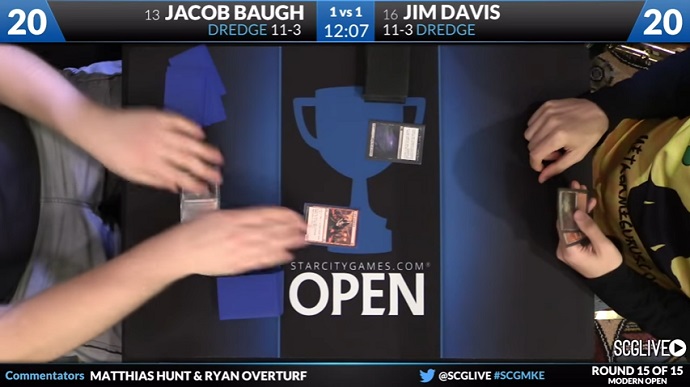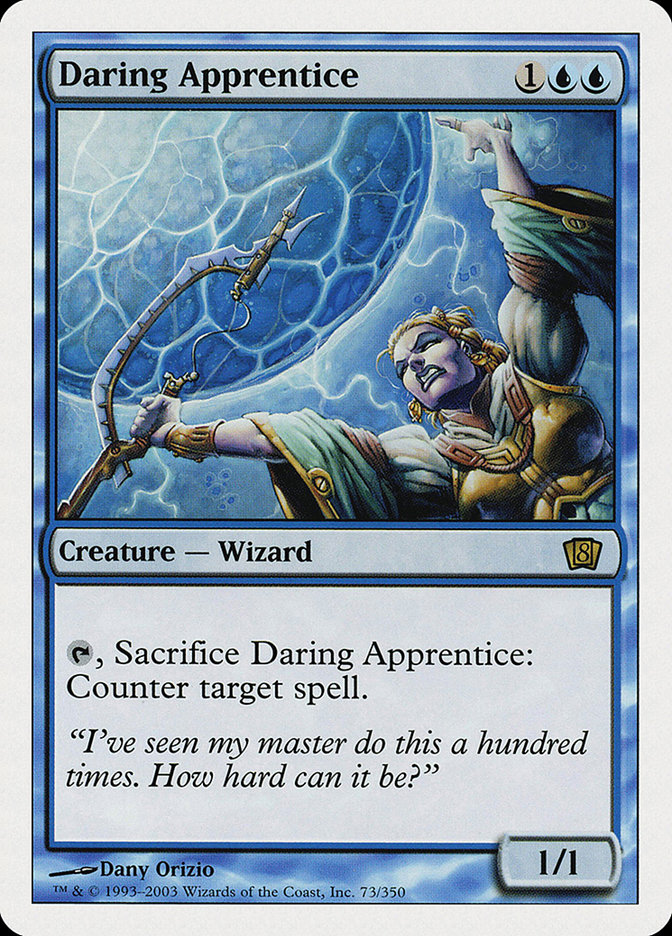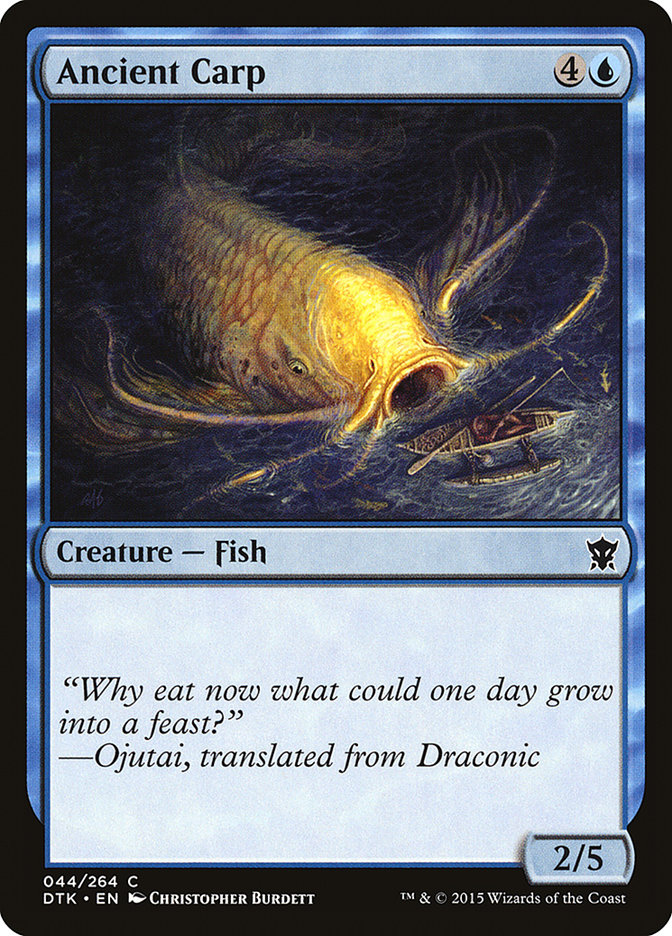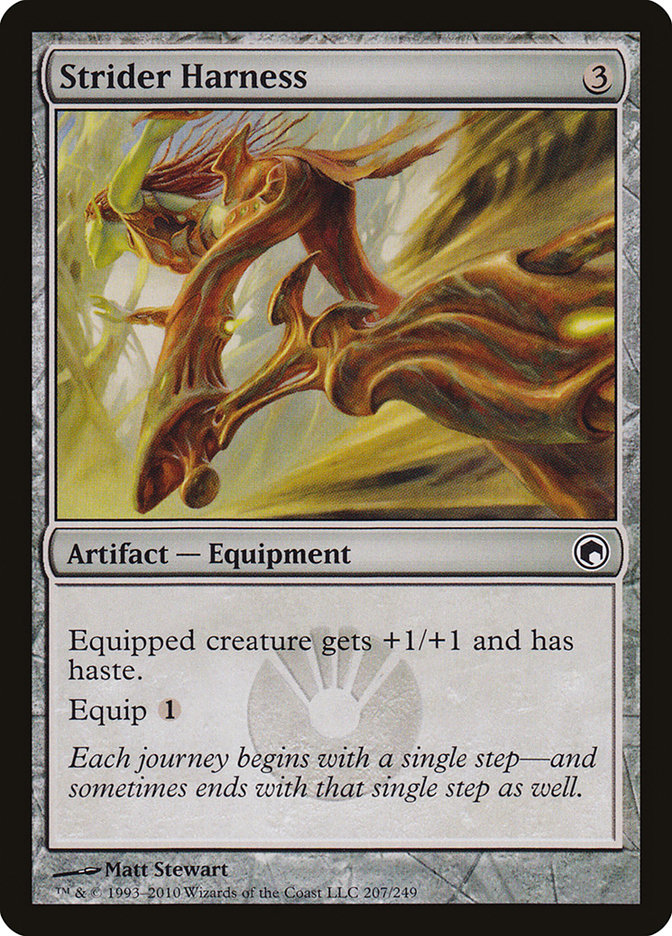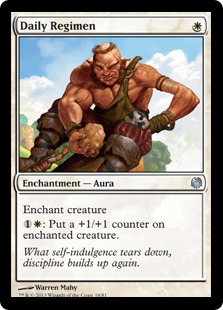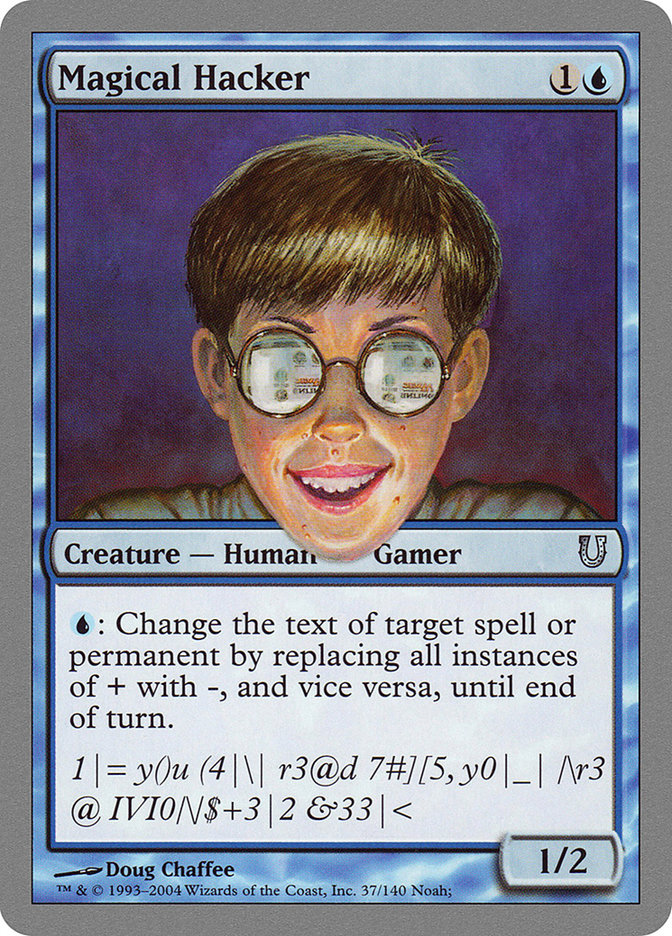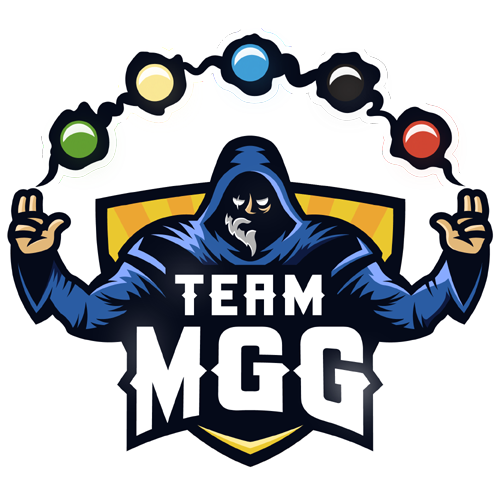Magic players are notoriously fickle.
We tend to jump around from one thing to another very often, changing decks as often as socks and alternating between playing Magic non-stop for weeks and taking month-long breaks from the game. This sort of inconsistency is understandable in a game that is so consistently inconsistent. Magic, at its core, is a fickle game. The swings from game to game can be huge, and those swings can have major repercussions on big picture things like your standing in a given tournament, or even your attempts to qualify for something bigger than the event itself.
“Yes, that’s a Game 3 mulligan to three.”
Last year I lost about a half-dozen win-and-ins for Top 8 at SCG Tour Opens. There were some mulligans and rough draws, but if some of those games happened to have fallen the other way, I’d have had over half a dozen Top 8s instead of three – potentially a very impressive year. On the flip side of the coin, if I hadn’t drawn out of my mulligan to five perfectly in Game 3 of the Players’ Championship 2015 quarterfinals against Jonathan Morowski, I wouldn’t have won the event and likely would’ve gone through with my plan of stepping away from the game.
Magic players seem to understand that the game is fickle, but this understanding rarely is put to use.
Magic players continue to view the game and its swings as an unstoppable force and succumb to its whims. When they are running well, it’s all sunshine and roses; when they are running badly, it’s “Why am I even wasting my time and money at this tournament? I don’t even know why I came,” over and over again.
The big reason for this is that players are taking a very small picture view of Magic. They take each event as it comes, with no real larger purpose for the game. They say they want to get better, or want to qualify for big events, or want to be a popular content creator, but never actually go about the process necessary to do these things. The ability to live in the moment is a valuable one, but not one that helps you to grow and progress as a player.
What helps you grow and progress as a player is having concrete goals and finding the steps necessary to see them through.
Goal: “I Want to Qualify for a Pro Tour”
One of the most common goals a Magic player has is to qualify for their first Pro Tour. They watch coverage, see their favorite players playing under the lights and winning trophies, and want to experience that too. Magic has no physical limitations. You’ve just gotta practice and play a lot and you can do it.
While it’s a nice narrative, there’s just so much more to it. Qualifying for a Pro Tour is an immensely complex goal, especially for someone who may be newer to the game. There are many steps and levels to overcome, and viewing it in such simplistic terms is foolish.
Common Goal Problem #1: Picking a goal that is too big.
It’s great to reach for the stars, but you have to get into the air first.
Depending on where you are currently in Magic, qualifying for a Pro Tour may be just around the corner or a number of steps beyond your current development. It’s not wrong to have “qualify for a Pro Tour” be a goal of yours; it’s just important to understand how far along you are towards this goal, and that it is going to encompass a number of sub-goals. If you’ve never even won your local FNM, there are going to be quite a few steps along the way.
Common Goal Problem #1 Solution: Divide your large goal into smaller sub-goals to make a staircase to your ultimate goal.
Sub-Goal #1: Master the local level.
It is safe to assume that if you can’t win your local FNM, you are not ready to play on a Pro Tour yet. However, this is okay! Being realistic about your current level of play is very important, and every player starts somewhere. In order to swim in the sea you must first be the biggest fish in your own pond.
How to get there:
- Befriend the top players in the store, and let them know you want to improve as a player. The only way to get better is to play against and share ideas with players who are better than you. This is a difficult thing to do for most Magic players, as ego often gets in the way. Don’t let it.
- Understand that Magic is expensive, and that qualifying for a Pro Tour is going to require you to buy the cards you need to keep up with the metagame as it evolves. This cost is part of your overall goal, but it can be offset by working together with friends to lend cards for decks.
- Network! Aside from just making Magic more enjoyable as a whole, having a network of local friends to practice with, share cards with, and later travel to events with is an essential part of the Magic experience.
The other option besides playing Magic locally, for those who lack the means or the time to do so, is to practice and play your events on Magic Online. Magic Online has both pluses and minuses. The amount of games you can play on Magic Online at any time of the day is amazing, as is the amount of time saved in managing your collection. The downsides are of course the cost and the lack of social interaction and networking. It’s much more difficult to just sit down and talk with the top players on Magic Online, and you will need to take extra steps to network with better players.
Many readers are at or already past this point, but being the big fish in a small pond is just the first step.
Sub-Goal #2: Qualify for a Regional Pro Tour Qualifier (RPTQ).
The Regional Pro Tour Qualifier system is the easiest path to the Pro Tour, but you have to get there first. This means winning a small Preliminary Pro Tour Qualifier, which is usually between twenty and 50 players. These events are often similar in size and player level to local FNMs.
I personally don’t think the current PPTQ system is very good, and this belief is commonly shared among most higher-level players. However, what is bad for me is great for the player looking to qualify for a first Pro Tour. As a result of this, PPTQs, and subsequently RPTQs, often have much softer fields than Grand Prix or SCG Tour events. You also only need to Top 4 the RPTQ to qualify, further solidifying the PPTQ/RPTQ system as the easiest way to qualify.
How to qualify:
- At the start of each season, make a schedule and plan to attend every PPTQ you can. Even the best Magic players in the world only win 70% of their matches, so you need to give yourself every chance possible. Don’t view each PPTQ as a singular event, but a piece to a larger puzzle.
- Schedule and plan your practice and preparation. Treat your playtesting like a sports team or athlete treats their practice. Keep it consistent, have a plan, and know what your end goal is. Scheduling and preparation is one of the biggest weaknesses of most Magic players, which falls right in line with their weakness in setting proper goals.
- If your practice is good, your preparation well-executed, and your mindset based around the process of improving as a player and not your results, don’t be mad if you don’t qualify. There’s always another round of PPTQs, and our big-picture goal of improving as a Magic player never goes away.
Sub-Goal #3: Top 4 the RPTQ (or 13-2 a Grand Prix).
The natural conclusion to our arc here is to actually punch your ticket to the Pro Tour. Playing in an RPTQ or Grand Prix is harder than any previous level and will simply require you to do what you were doing for the PPTQ but better. You will need to improve your game steadily throughout the process as well as cultivating a positive and goal-oriented mindset.
These are not easy things to do, but setting a long-term goal for yourself helps to give you the focus to see it through. It all sounds pretty easy when laid out like this, but this set of three sub-goals could take a player anywhere from a few months to years to overcome. The act of actually improving at Magic is not an easy one and much more difficult in practice than discussion. Also, each of these sub-goals could be broken down even further into more and more sub-goals, something that should be encouraged. If you find yourself plateauing on a particular goal or area of your Magic game, look to break it down even further and find the ways you can go about overcoming it.
Playing events with an overall purpose that is larger than just a weekend is vital if you are actually looking to improve your game. Having the goal of “do well at the event this weekend” is shortsighted, will often fail, and does nothing for your big-picture goal of improving and growing as a player.
Goal: “I Want to Write Articles for StarCityGames.com”
Makes sense, right? You love Magic, you are literate… why can’t you write for StarCityGames.com too?
When it comes to content creation, or most things really, people have a difficult time conceptualizing how difficult it is to either do or put yourself in a position to do. This leads to thousands of armchair quarterbacks every Sunday, yelling at Russell Wilson to just give the damn ball to Marshawn Lynch on the two-yard line from the comfort of their living rooms, to viewers on Twitch.tv screaming how Brad Carpenter should just go for the lethal infect attack and not be a doofus, to people yelling at (new dad, congrats!) Mark Nestico for how their deck does not in fact actually suck.
People think that these people can do it, so why can’t they?
Common Goal Problem #2: People think things are easy.
It’s easy to chime in from the sidelines, but not as easy to put yourself out there for others to chime in on. People often don’t understand this until they are actually on the two-yard line holding the ball, under the lights of a difficult feature match, or pouring hours into writing that will be viewed by tens of thousands of people. People also rarely see the path it took for that person to finally put themselves in that position— the work behind the scenes and the failed attempts that led them to where they are now.
So they write one article, send it to Danny West (the very handsome and talented StarCityGames.com editor), get it rejected, and say “Whatever, I didn’t want to really write articles anyway.”
Common Goal Problem #2 Solution: Understand that everyone had a path to get where they are now, and you never get to see most of that path.
Every writer on StarCityGames.com has a long path that took them to finally writing for Magic’s top website. Each one involved being part of the community in some positive way, whether results at events or otherwise, and required hard work and dedication to earn. If writing for a major website is your goal, what is your path?
- Start writing! Even if nobody is paying you! You are never going to get paid for writing until you can prove that you have worthwhile things to say. Show your friends, show your mom, get feedback, and strive to improve your writing in every way you can. This can be improving the actual structure and style of your writing to making sure you have killer information.
- Post this writing on your Facebook or blog and get people to look at it. Again, take in as much feedback as possible, engage your audience, and learn what works and what doesn’t work.
- Make yourself known in the community! This can be done by doing well in events, brewing awesome decks, or just contributing to the community in a positive way. The better-known you are, the better chance you have of being a draw for a website.
- Once you’ve started to get good feedback on your work, try to submit it to some of the smaller, up-and-coming Magic websites. Get your foot in the door, produce quality work, and then when it is going well, you can send that e-mail to Danny and try to step to the big leagues.
Again, this sounds simple on paper when outlined, but it is not a simple process. This may take months or even years to happen, but outlining your desire into a concrete goal, figuring out what things need to happen to make that goal a reality, and attacking them is the way to get what you want.
Goal: “I Want to Stream Magic Fulltime on Twitch.tv”
Streaming, as well as mediums like YouTube, podcasting, and other alternative methods of content production, is a hard thing to break into. Rather than trying to prove your worth to a large company like StarCityGames.com, you have to do almost everything yourself; you are responsible in full for your own success or failure.
This is liberating, but also daunting.
Similar to writing articles, people watch streamers like NumotTheNummy or Paul Cheon and think to themselves, “That person is literally getting paid to play Magic. I can do that!” So they sign up for Twitch.tv, buy a cheap webcam and mic, and go live. Fame and riches await!
…
“I’ve been playing for five hours and I only have two viewers… and one of them is my dog… this sucks.”
Common Goal Problem #3: People want instant results for their goal, and when they don’t see them, they give up.
Again, people don’t always see the path that these popular streamers have taken. Numot streamed every day for a year. Paul is a top-level Magic player who’s been creating quality content for years. Both have worked tirelessly to build themselves up to where they are now. Nobody starts at the top, and building yourself up to the level you want to be is going to take time.
Common Goal Problem #3 Solution: Understand that having a goal is not just a thing you want to do, but a process with many steps that will take time to come to fruition.
It’s often hard not to be shortsighted, and we are definitely raised to want (and get) things quickly. Today my washing machine broke, and I had made an appointment online for a repairman to be at my door at 8 AM tomorrow within five minutes online. Want to buy something? Amazon.com or eBay, and it will be there in two days. Want to see a movie? Click download.
The problem is that most things in life worth having don’t work like this. You are going to start streaming, and most likely there aren’t going to be many people watching. But you need to start somewhere, and here’s how:
- Do your research, and see what it is that other streamers do that you like. Take the time to learn about the software, overlays, and equipment. Understand that there will be some initial financial costs involved.
- Stream! Understand that, to start, unless you are already a well-known member of the community, you are going to be playing for a very small handful of viewers. It’s easy to be discouraged, but you’ve just have to pretend that there’s a crowd watching. You can treat it like you are recording a draft video for others to watch at a later time.
- Work to network with other streamers. Watch other streams, participate in chat, and look for like-minded people to get together with. Streams hosting other streams is a great way to drive traffic between streams and can help build up a nice network of friends. Make friends for the sake of making friends, not just to build your stream!
- Try to find something unique about your stream that can help make viewers watch you over someone else. Timing is also important— if you can, try to stream at times where other popular streamers are not streaming. It’s hard to overcome someone who has a big audience already.
Once again, the overall thing to do is to set a long-term goal of streaming success and figure out all the things you need to do to achieve that goal.
And Many More
Setting goals goes far beyond Magic into almost any area of your life that you want to improve. It can be fitness, finding a job you love, relationships… you name it. The process of being able to set a goal, figure out what that goal will require, and then put those things into motion is one of the most valuable skills you can cultivate.
Without goals we are just adrift, doing things independently and hoping they all come together in the end. Just like in a game of Magic, that often does not work out well. If you can figure out how to have a plan in the Mardu Vehicles vs. B/G Constrictor matchup that makes it winnable, you can figure out how to plan achieving the goals you really want to achieve.
Bonus – Team MGG 2017 Has Launched!
I’m super-excited to announce that Team MGG launched our six-player 2017 lineup this weekend! With some returning faces and some new ones, the team split up, sending three players to #GPNJ and three players to #SCGDFW, and we’ve already had our first big success with Ben Friedman reaching the finals of the Grand Prix. We’ve also launched our website, MetagameGurus.com, where we will be offering coaching services and more, as well as streaming on Twitch.tv!
Excited? Want to know who’s on the team? Head over to our Twitter for more information!


